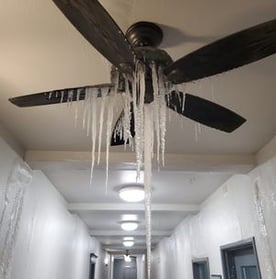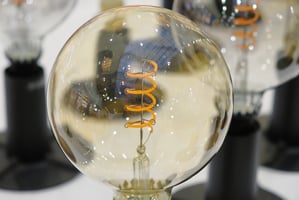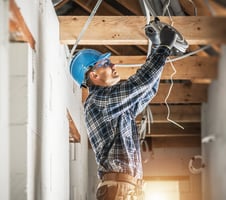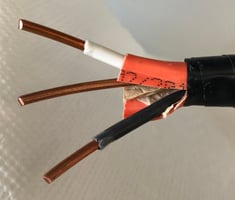Today, we take the electricity in our homes entirely for granted. We know we can flip a switch,...
Water + Electricity = Extreme Danger
 The entire country is watching the disaster in Texas right now, causing myriad problems from a complete weather surprise in a state that wasn’t ready for such an unprecedented occurrence of snow, ice, and bitter cold. You may have seen the photo of the icicles hanging from a ceiling fan in USA Today this week that has gone viral. It’s an absolute nightmare, and the entire country is holding Texas in love and support right now.
The entire country is watching the disaster in Texas right now, causing myriad problems from a complete weather surprise in a state that wasn’t ready for such an unprecedented occurrence of snow, ice, and bitter cold. You may have seen the photo of the icicles hanging from a ceiling fan in USA Today this week that has gone viral. It’s an absolute nightmare, and the entire country is holding Texas in love and support right now.
Deep plunges into cold weather cause havoc, even here in the D. C. area, where we can expect some freezing blasts in the winter months. When people are unaware of the potential dangers, the problems can quickly become life-threatening.
Water and Electricity Don’t Mix
We all learn this lesson as children. Or do we? When hit with a sudden, unexpected disaster, the problems become even worse if you have not had any occasion to put the lesson to good use in the past. Texas’s tragic situation of water gushing out of burst sprinkler pipes through the electric ceiling fans does remind us to review how to safely operate when dealing with electricity and water in the same emergency.
If you have electrical power and flooding (from above or below) is actively occurring:
- Step 1. TURN OFF THE POWER
- Step 2. DO NOT enter/reach into/touch the water unless the power is OFF.
- Step 3. Call a local electrician (in the greater D.C. area, we can help).
Frozen Pipes and No Power
Your first concerns are often cooking, light to see by, and getting a shower if your power goes out. For many people, no electricity means no heat. When this happens, you must take precautions if the weather is cold enough to freeze. If it freezes in your water lines, pipes can burst, and all your problems just got much worse. Follow these recommendations:
- Leave a small trickle of water running in your faucets. Both hot and cold lines, as either or both can freeze. The running water alone may prevent freezing and keep your pipes from bursting.
- Leave the cupboard doors under the sinks open. Doing so will allow air to circulate and can help keep things warmer.
- If you keep cleaners, bleach, or any other flammable or explosive chemical items under the sink, move them all to a safe spot.
- Move refrigerated and frozen food to the garage or other now "refrigerated" areas.
- Keep bottled water, batteries, flashlights, candles, extra blankets and some healthy edibles on hand for emergency use only.
- If you have an attached garage, close the doors to trap in heat. DO NOT RUN YOUR CAR in a closed garage, as the fumes can be undetectable and fatal.
- Bring pets inside.
- Reach out to a neighbor who may be alone and unable to survive without the kindness of others.
When there is no power and extreme cold, things can go from inconvenient or unpleasant to the worst possible outcome. Don’t let that happen to your family, even when you never expected to live through an epic winter storm. The smartest thing to do is be prepared. Mother Nature is capable of surprising us. Staying alive when you are freezing is crucial. Let's keep our electrical grid and our emergency kits in good condition year-round.
Be safe!



